INTERVIEW 01
Engineers sound off
on their love for music
and the listening experience
INTERVIEW 02
The Best Place to Listen
to Music is In Your Car
INTERVIEW 03
Diverse ways to enjoy music
means new challenges
in the marketplace
INTERVIEW 04
Passion for Developing
Premium Car Stereos
INTERVIEW 05
Channeling the love of music
into the new AV receiver
Diverse ways to enjoy music means new challenges
in the marketplace
Q: With the emergence of online music services and the dominance of social networks, how has the delivery of music changed?
Tsushima:
Personally, I think that what we're talking about is that there are more tools for enjoying music now than ever before. Digital takes off and suddenly people want analog again so there is a big push for vinyl. Nothing is permanent, basically, and as time goes on, new movements and new technologies naturally emerge. When people start to settle on ways to listen to music that they like, I start thinking about how to get the music to them.
Yoshinari:
It's the best approach, really. Great sound quality is always going to be the goal, but even if you can create the ultimate sound experience, you’ve got to believe that there are people out there, here and across the globe, that understand what you are going for.
Tsushima:
It's okay to have standards, to stick with what you like, but you should always be ready to try different things. I'm not the kind of guy that says there's only one device to listen with, or that analog is the only way to go.
Q: What is the right approach towards a market in which there are many competitors?
Tsushima:
Looking at the artists that perform at the Tokyo Dome, the majority are rock artists. This means that rock is a huge segment of the current market. Once you break it down like that, you can begin to see the size of your market. Then you can easily get an idea of how well, and at what scale, your music will sell.
Q: So you develop your business based on a clear view of the market?
Tsushima:
For big labels, they have to say, "let's push this genre" or "let's sign this artist" and plan in that direction to grow their business, but for smaller labels like us, our process begins when we find a unique sound that we think is missing from the current market. Our approach is to reach as many people as possible and offer them a chance to discover some new, possibly strange, but definitely exciting music, and in doing so, expand our customer base.
Tsushima:
Instead of just making music that the customers want, it's about making the music that we want to make and helping the customers and trends catch up to us. The typical sales approach is either direct like a fastball or indirect like a curve ball. I suppose that customers might see our approach as more like a changeup - a bit unexpected.
Q: You mean that it's not necessarily your intention?
Tsushima:
Well, we are being direct, but maybe not in the way that most people are used to. Of course, it's great when the music that you want to sell happens to have a big market, but sometimes it just doesn't work out that way and that's okay. For my company, we feel that it's our mission to continue to widen the market for niche music and give the Japanese market more music choices.
Q: It's important to set high standards, but reaching them is another matter entirely I suppose.
Yoshinari:
Sound quality isn't something that you can visualize or measure easily. It becomes a question of whether there is value in spending your budget in that direction. To get where we are now, we had to struggle with that question, and it paid off. The new AV receiver is a great piece of audio equipment with spectacular sound quality. We know that when people try it out, it will be just like discovering a great album.
Q: What is the most essential thing you can do to get that message across?
Tsushima:
You've got to get the message out there. That's the first and most important step. It's the same for everyone - music creators and car stereo developers as well. We want more than anything for customers to identify with the message we're trying to get across.
Q: The ways to enjoy music continue to evolve and expand, but as a conduit for conveying music, is there a particular segment of the market that you want to reach?
Tsushima:
Music can be enjoyed by anyone regardless of race, gender, or age. For example, if a three-year-old kid tells me he likes our music or an older adult says he's heard our songs, then that makes me incredibly happy. We've got no reason to limit our audience.
Yoshinari:
When an artist puts together an album, there are parts in the song where they want listeners to cry or get excited. So many people worked to make that album the best it can be and it's our job to preserve their hard work when played through our product. The worst possible thing that can happen is to have the sound degrade to such a point where those emotional beats are lost.
Q: Is it about preserving the original sound?
Yoshinari:
Exactly. We've made it our mission to create a product that gives you the experience of hearing the music just as it was recorded in the studio, but while in your car.
to be continued Vol.4
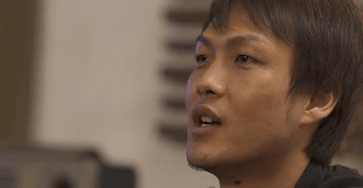
VOl.01
Engineers sound off on their love
for music and the listening experience
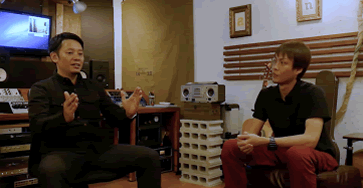
VOl.02
The Best Place to Listen to Music is In Your Car
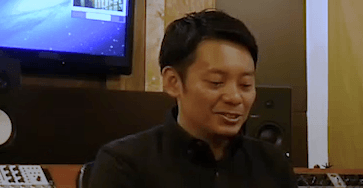
VOl.03
Diverse ways to enjoy music means new challenges in the marketplace
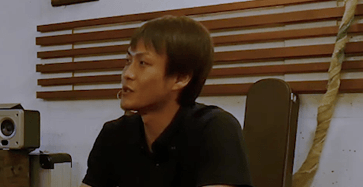
VOl.04
Passion for Developing Premium Car Stereos
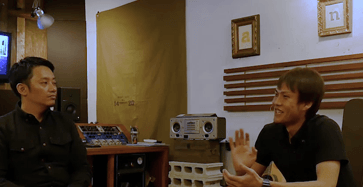
VOl.05
Channeling the love of music into the new AV receiver